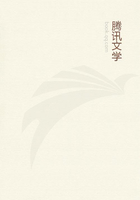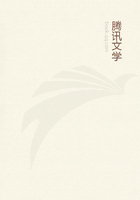No: the body has acquired life, it is the body that will acquire, with life, sensation and the affections coming by sensation.Desire, then, will belong to the body, as the objects of desire are to be enjoyed by the body.And fear, too, will belong to the body alone; for it is the body's doom to fail of its joys and to perish.
Then again we should have to examine how such a coalescence could be conceived: we might find it impossible: perhaps all this is like announcing the coalescence of things utterly incongruous in kind, let us say of a line and whiteness.
Next for the suggestion that the Soul is interwoven through the body: such a relation would not give woof and warp community of sensation: the interwoven element might very well suffer no change:
the permeating soul might remain entirely untouched by what affects the body- as light goes always free of all it floods- and all the more so, since, precisely, we are asked to consider it as diffused throughout the entire frame.
Under such an interweaving, then, the Soul would not be subjected to the body's affections and experiences: it would be present rather as Ideal-Form in Matter.
Let us then suppose Soul to be in body as Ideal-Form in Matter.
Now if- the first possibility- the Soul is an essence, a self-existent, it can be present only as separable form and will therefore all the more decidedly be the Using-Principle [and therefore unaffected].
Suppose, next, the Soul to be present like axe-form on iron: here, no doubt, the form is all important but it is still the axe, the complement of iron and form, that effects whatever is effected by the iron thus modified: on this analogy, therefore, we are even more strictly compelled to assign all the experiences of the combination to the body: their natural seat is the material member, the instrument, the potential recipient of life.
Compare the passage where we read* that "it is absurd to suppose that the Soul weaves"; equally absurd to think of it as desiring, grieving.All this is rather in the province of something which we may call the Animate.
* "We read" translates "he says" of the text, and always indicates a reference to Plato, whose name does not appear in the translation except where it was written by Plotinus.S.M.
5.Now this Animate might be merely the body as having life: it might be the Couplement of Soul and body: it might be a third and different entity formed from both.
The Soul in turn- apart from the nature of the Animate- must be either impassive, merely causing Sense-Perception in its yoke-fellow, or sympathetic; and, if sympathetic, it may have identical experiences with its fellow or merely correspondent experiences: desire for example in the Animate may be something quite distinct from the accompanying movement or state in the desiring faculty.
The body, the live-body as we know it, we will consider later.
Let us take first the Couplement of body and Soul.How could suffering, for example, be seated in this Couplement?
It may be suggested that some unwelcome state of the body produces a distress which reaches to a Sensitive-Faculty which in turn merges into Soul.But this account still leaves the origin of the sensation unexplained.
Another suggestion might be that all is due to an opinion or judgement: some evil seems to have befallen the man or his belongings and this conviction sets up a state of trouble in the body and in the entire Animate.But this account leaves still a question as to the source and seat of the judgement: does it belong to the Soul or to the Couplement? Besides, the judgement that evil is present does not involve the feeling of grief: the judgement might very well arise and the grief by no means follow: one may think oneself slighted and yet not be angry; and the appetite is not necessarily excited by the thought of a pleasure.We are, thus, no nearer than before to any warrant for assigning these affections to the Couplement.
Is it any explanation to say that desire is vested in a Faculty-of-desire and anger in the Irascible-Faculty and, collectively, that all tendency is seated in the Appetitive-Faculty?
Such a statement of the facts does not help towards making the affections common to the Couplement; they might still be seated either in the Soul alone or in the body alone.On the one hand if the appetite is to be stirred, as in the carnal passion, there must be a heating of the blood and the bile, a well-defined state of the body;on the other hand, the impulse towards The Good cannot be a joint affection, but, like certain others too, it would belong necessarily to the Soul alone.
Reason, then, does not permit us to assign all the affections to the Couplement.
In the case of carnal desire, it will certainly be the Man that desires, and yet, on the other hand, there must be desire in the Desiring-Faculty as well.How can this be? Are we to suppose that, when the man originates the desire, the Desiring-Faculty moves to the order? How could the Man have come to desire at all unless through a prior activity in the Desiring-Faculty? Then it is the Desiring-Faculty that takes the lead? Yet how, unless the body be first in the appropriate condition?
6.It may seem reasonable to lay down as a law that when any powers are contained by a recipient, every action or state expressive of them must be the action or state of that recipient, they themselves remaining unaffected as merely furnishing efficiency.
But if this were so, then, since the Animate is the recipient of the Causing-Principle [i.e., the Soul] which brings life to the Couplement, this Cause must itself remain unaffected, all the experiences and expressive activities of the life being vested in the recipient, the Animate.
But this would mean that life itself belongs not to the Soul but to the Couplement; or at least the life of the Couplement would not be the life of the Soul; Sense-Perception would belong not to the Sensitive-Faculty but to the container of the faculty.















